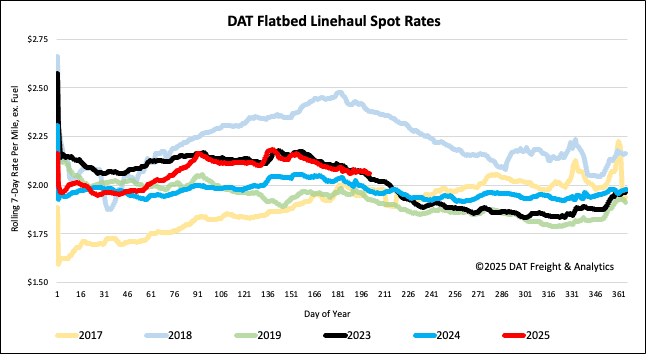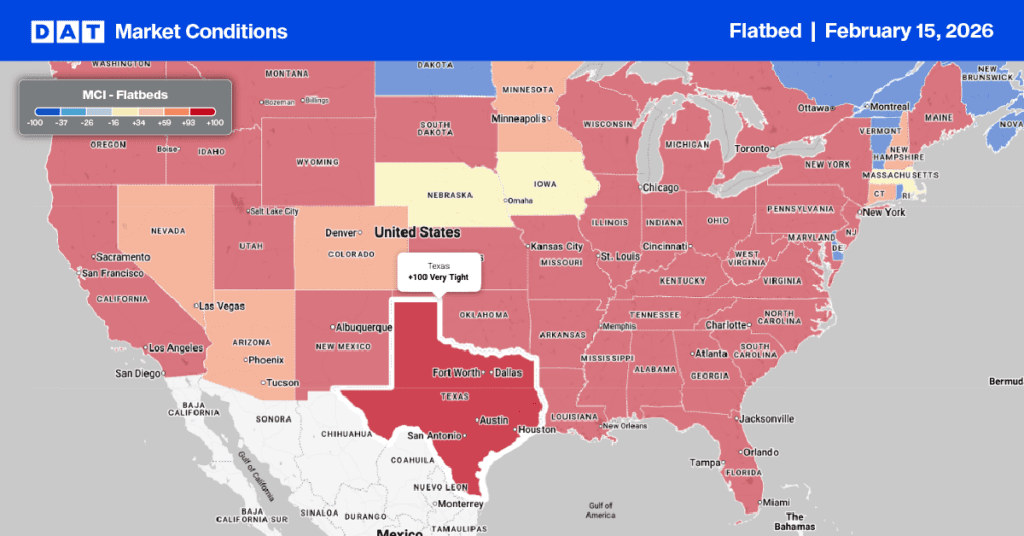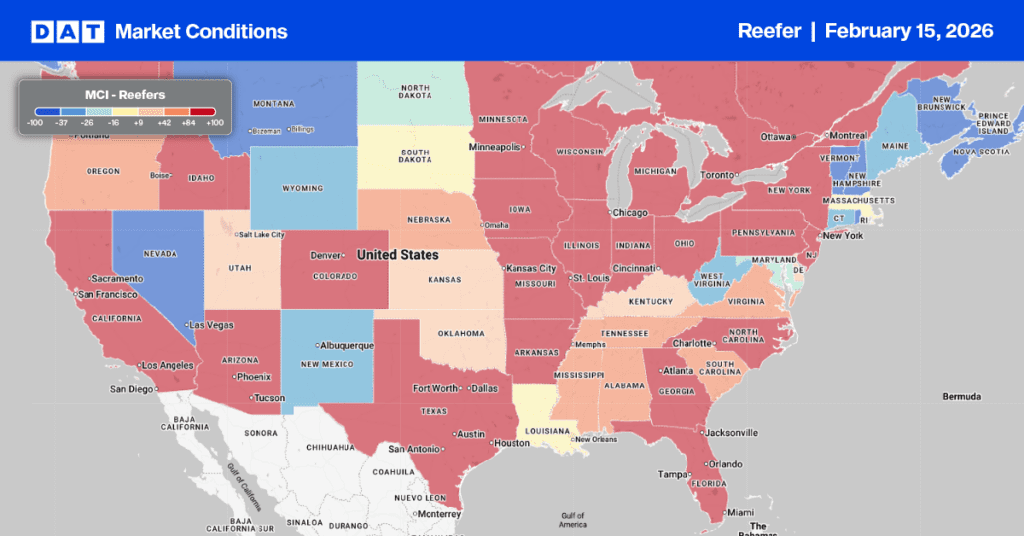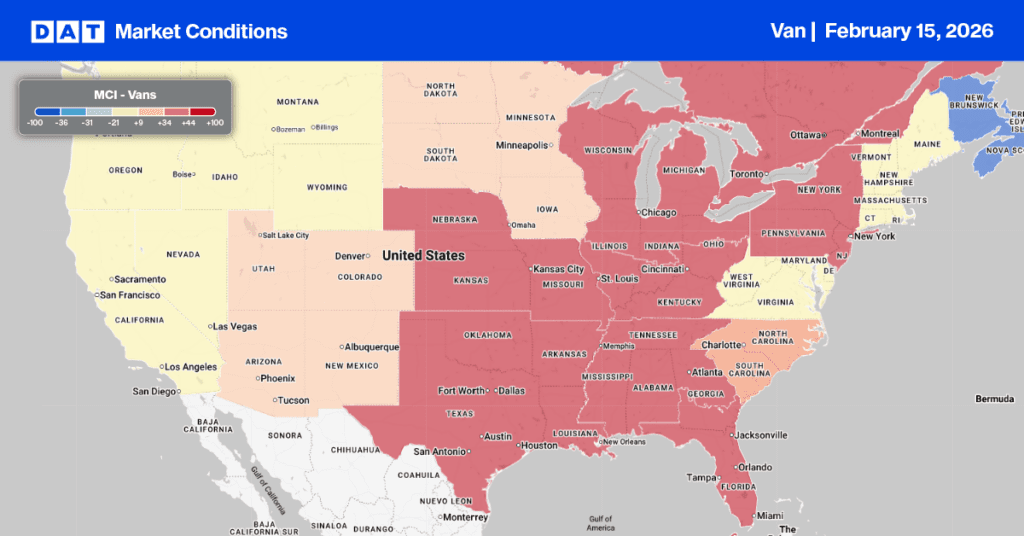The “pallet season,” a crucial but often overlooked element of the agricultural supply chain, is intrinsically linked to the annual produce harvest. The overwhelming reliance on pallets for efficient, protective, and well-ventilated transport of fresh fruits and vegetables drives an immediate and substantial surge in demand during regional produce seasons. This seasonal spike can stress the pallet supply chain, leading to potential shortages, increased costs for both new and recycled pallets, and logistical hurdles as growers and shippers compete for sufficient pallets to move their perishable goods.
Get the clearest, most accurate view of the truckload marketplace with data from DAT iQ.
Tune into DAT iQ Live, live on YouTube or LinkedIn, 10am ET every Tuesday.
This direct correlation means that pallet demand, availability, and pricing are subject to significant seasonal impacts, much like truckload rates for reefers during produce season. External factors such as lumber prices for wooden pallets and resin prices for plastic pallets further influence costs during these peak times. Ultimately, the “pallet season” is a vital, behind-the-scenes factor in the efficient movement of agricultural products through the supply chain to consumers.
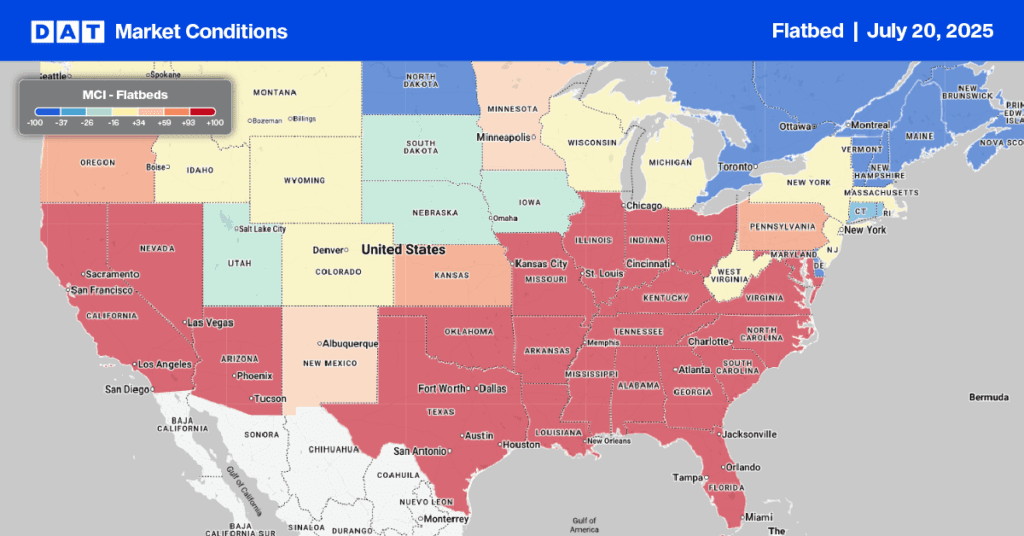
Load-to-Truck Ratio
Last week, the flatbed market experienced a cool-down after the post-Independence Day surge in activity. This resulted in a 16% drop in flatbed load posts and a 20% decrease in the flatbed load-to-truck ratio, which reached 21.63. The decline was also influenced by a 7% increase in carrier equipment posts.
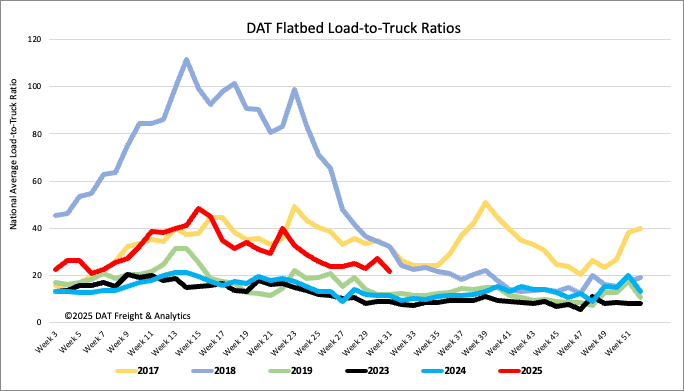
Spot rates
Last week, the national average flatbed spot rate, excluding fuel, saw its most significant weekly drop in a month, falling by $0.03/mile to $2.08 per mile. Despite this decrease, the current rate remains $0.09 per mile higher than the same week in 2024 and $0.02 higher than in 2023.
